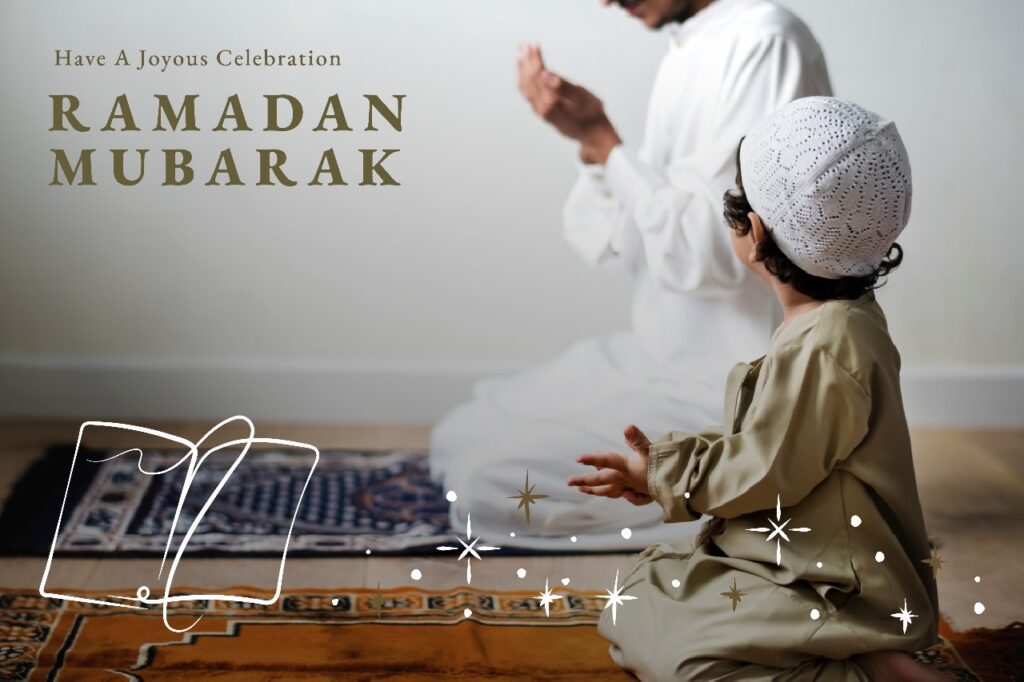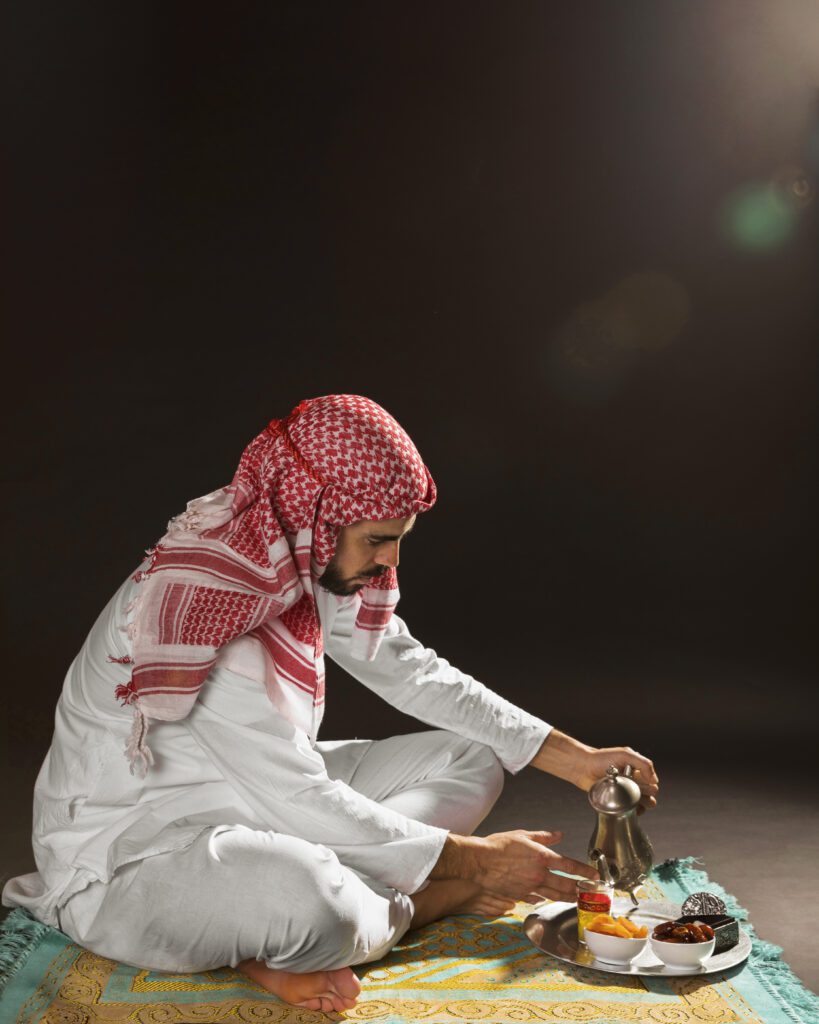The ninth month of the Islamic lunar calendar, Ramadan, is a very important time for Muslims all around the world. It’s a time for community, introspection, fasting, and prayer.
As the crescent moon heralds the arrival of Ramadan 2024, it provides an opportunity for Muslims to delve deep into their spirituality, embrace the teachings of Islam, and foster a sense of unity and compassion.
Table of Contents
Understanding Ramadan 2024
Ramadan is not merely about abstaining from food and drink from dawn until dusk. It is a holistic approach to spiritual purification and self-discipline. Muslims fast during this month as an act of obedience to Allah and as a means to attain taqwa, or God-consciousness. Through fasting, Muslims aim to purify their souls, seek forgiveness for past sins, and draw closer to their Creator.

An important month in the Islamic lunar calendar that Muslims around the world observe is Ramadan. It is a time marked by fasting, prayer, reflection, and spiritual growth. The word “Ramadan” itself holds deep meaning, derived from the Arabic root word “ramad,” which means intense heat or dryness, symbolizing the spiritual struggle and purification that fasting entails.
Meaning and Significance
Ramadan holds profound significance for Muslims as it commemorates the month in which the Quran, the holy book of Islam, was revealed to the Prophet Muhammad (peace be upon him). It is considered the holiest month in Islam, and fasting during Ramadan is one of the Five Pillars of Islam, essential acts of worship that form the foundation of a Muslim’s faith and practice.
Observance and Practices
Muslims refrain from eating, drinking, smoking, and having sexual interactions with others from sunrise (Fajr) till dusk (Maghrib) during Ramadan.
Fasting is obligatory for adult Muslims, with exceptions for those who are ill, pregnant, nursing, traveling, menstruating, or elderly. Besides fasting, Muslims engage in increased acts of worship, such as reciting the Quran, performing extra prayers (Taraweeh), giving charity (Zakat), and seeking forgiveness.
Ramadan is not just about refraining from physical nourishment but also about spiritual nourishment. Fasting encourages self-discipline, self-control, and empathy for the less fortunate. It serves as a means for Muslims to purify their hearts, seek forgiveness for past sins, and draw closer to Allah.
Spiritual Reflection
Central to Ramadan is the concept of spiritual reflection. Muslims use this month to assess their actions, intentions, and relationship with Allah. They strive to improve their character, strengthen their faith, and develop a deeper connection with the Divine. Through fasting and prayer, Muslims seek inner peace, tranquility, and spiritual fulfillment.
In essence, Ramadan is not merely a ritualistic observance but a transformative experience that rejuvenates the soul and reinforces one’s commitment to righteousness and piety. It is a time of heightened spirituality, communal solidarity, and personal growth, guiding Muslims on a journey of self-discovery and spiritual enlightenment.
Embracing the Spirit of Ramadan
Central to Ramadan is the notion of embracing its spiritual essence. Beyond the physical act of fasting, it is a time for introspection and self-improvement. Muslims are encouraged to engage in increased acts of worship, such as reciting the Quran, performing additional prayers, and engaging in supplication.

Community and Solidarity
Ramadan also emphasizes the importance of community and solidarity. Muslims gather for nightly prayers known as Taraweeh, breaking their fast together during Iftar, and sharing meals with those less fortunate. This sense of communal support strengthens bonds within the Muslim ummah and reinforces the spirit of generosity and empathy.
Family and Traditions
Family plays a central role in Ramadan observance. The pre-dawn meal of Suhoor and the evening meal of Iftar are cherished times for families to come together, share blessings, and strengthen familial bonds. Moreover, Ramadan traditions passed down through generations enrich the cultural fabric of Muslim communities worldwide.
Ramadan cultivates gratitude for life’s blessings and instills humility in the hearts of believers. Fasting fosters empathy for the less fortunate, as Muslims experience hunger and thirst firsthand. This heightened awareness of one’s privileges encourages acts of charity and compassion towards those in need. Ramadan serves as a reminder for Muslims to cultivate gratitude for the blessings bestowed upon them and to embody humility in their daily lives. This profound month encourages believers to reflect on their privileges, express appreciation for Allah’s provisions, and practice humility in their interactions with others.
Appreciation for Blessings
Fasting during Ramadan fosters a deep sense of gratitude for life’s blessings. As Muslims abstain from food and drink during daylight hours, they become acutely aware of the basic necessities often taken for granted. The experience of hunger and thirst serves as a reminder of Allah’s sustenance and provision. Ramadan prompts individuals to reflect on the abundance in their lives, from the gift of nourishment to the blessings of family, health, and shelter.
Fostering Humility through Fasting
Ramadan offers a unique opportunity for believers to cultivate humility through the act of fasting. By voluntarily abstaining from food, drink, and other physical comforts, Muslims acknowledge their dependence on Allah and their vulnerability as human beings. Fasting levels the playing field, uniting rich and poor, young and old, in a shared experience of deprivation and reliance on divine sustenance. This humbling experience encourages individuals to adopt a mindset of gratitude and humility, recognizing their limitations and seeking Allah’s mercy and guidance.
Acts of Charity and Compassion
Central to Ramadan is the practice of charity (Zakat) and compassion towards others. Fasting fosters empathy for the less fortunate, as individuals experience firsthand the discomfort of hunger and thirst. This heightened awareness of the struggles faced by others motivates Muslims to extend a helping hand to those in need. From providing food to the hungry to offering financial assistance to the disadvantaged, Ramadan inspires acts of kindness and generosity. Through these charitable deeds, believers express gratitude for their own blessings and demonstrate humility by serving those less fortunate.
Expressing Gratitude through Prayer
Prayer plays a central role in expressing gratitude during Ramadan. Muslims engage in extra prayers, supplications, and remembrance of Allah throughout the day and night. These spiritual practices provide an opportunity to express gratitude for Allah’s countless blessings, seek forgiveness for past shortcomings, and request guidance for the future. By turning to Allah in prayer, believers acknowledge their dependence on Him and express gratitude for His mercy, compassion, and abundant provision.
In essence, Ramadan serves as a powerful reminder for Muslims to cultivate gratitude for the blessings in their lives and to embody humility in their interactions with others. Through fasting, acts of charity, and expressions of gratitude in prayer, believers deepen their appreciation for Allah’s blessings and strive to live with humility and gratitude throughout the year.
Personal Growth
During Ramadan, Muslims embark on a journey of personal growth and spiritual renewal. They set goals for self-improvement, reflect on past behaviors, and strive to become better individuals. Whether it’s breaking bad habits or cultivating virtuous qualities, Ramadan serves as a catalyst for positive change.

Ramadan presents a golden opportunity for Muslims to embark on a journey of personal growth and self-improvement. Beyond the physical act of fasting, this sacred month encourages believers to reflect on their inner selves, set spiritual goals, and strive for positive change.
Setting Spiritual Goals
During Ramadan, Muslims are encouraged to set spiritual goals aimed at enhancing their relationship with Allah and improving their character. These goals may include increasing acts of worship, such as praying extra prayers (Nafl), reciting more Quran, or engaging in supplication and remembrance. Additionally, individuals may aspire to break bad habits, cultivate virtuous qualities, and strengthen their faith through acts of charity and kindness.
Reflecting on Past Achievements and Shortcomings
Ramadan provides an opportune moment for individuals to reflect on their past achievements and shortcomings. Believers assess their actions, intentions, and behaviors, acknowledging areas where they have succeeded and areas where they have fallen short. This process of self-reflection enables Muslims to identify areas for improvement and make a conscious effort to rectify past mistakes.
Striving for Self-Improvement
Central to Ramadan is the pursuit of self-improvement and personal growth. Fasting instills discipline, self-control, and resilience, qualities that are essential for achieving long-term goals. By exercising restraint over physical desires, individuals learn to overcome challenges and develop a stronger sense of willpower. Moreover, this month encourages believers to adopt positive habits, such as practicing gratitude, forgiveness, patience, and generosity, which contribute to overall well-being and spiritual growth.
Seeking Guidance and Inspiration
Ramadan serves as a source of inspiration and guidance for individuals seeking to better themselves. Muslims draw inspiration from the examples set by the Prophet Muhammad (peace be upon him) and his companions, who exemplified righteousness, integrity, and devotion to Allah. The collective spirit of Ramadan, characterized by communal prayers, acts of charity, and mutual support, motivates individuals to strive for excellence and make positive changes in their lives.
Harnessing Ramadan Reflections for Long-Term Growth
The lessons learned and insights gained during Ramadan are not confined to the month itself but extend far beyond. Muslims are encouraged to carry forward the spirit of this month throughout the year, integrating its principles of self-discipline, gratitude, and compassion into their daily lives. By harnessing Ramadan reflections for long-term growth, believers cultivate a lasting commitment to spiritual development and continue on the path of self-improvement beyond the conclusion of the month.
In conclusion, Ramadan serves as a catalyst for personal growth and self-transformation. Through setting spiritual goals, reflecting on past experiences, striving for self-improvement, seeking guidance, and harnessing this month reflections for long-term growth, Muslims embark on a journey of self-discovery, spiritual enrichment, and positive change during this blessed month.
Connection with the Divine
Central to Ramadan reflections is the deepening of one’s connection with the Divine. Muslims devote themselves to increased prayer, seeking forgiveness for past transgressions, and supplicating for guidance and blessings. Through spiritual introspection, believers aim to strengthen their faith and draw closer to Allah.
Ramadan provides a sacred opportunity for Muslims to deepen their connection with the Divine and strengthen their relationship with Allah. This blessed month is marked by increased acts of worship, heartfelt supplications, and spiritual introspection, all aimed at drawing closer to the Creator.
Strengthening Faith and Spirituality
At the heart of Ramadan is the pursuit of spiritual growth and enlightenment. Muslims devote themselves to increased prayer, recitation of the Quran, and remembrance of Allah, seeking to strengthen their faith and enhance their spirituality. The heightened atmosphere of devotion during this month serves as a catalyst for believers to reaffirm their commitment to Allah and renew their dedication to living a righteous and virtuous life.
Seeking Forgiveness and Guidance
Ramadan is a time for seeking forgiveness for past transgressions and seeking guidance for the future. Muslims engage in sincere repentance (Tawbah) and heartfelt supplications (Dua) throughout the month, acknowledging their shortcomings and seeking Allah’s mercy and forgiveness. By turning to Allah in humility and submission, believers seek guidance and divine assistance in navigating the challenges of life and staying on the path of righteousness.
Deepening Spiritual Connection
Fasting during Ramadan fosters a deep spiritual connection with Allah. By abstaining from food, drink, and other worldly distractions during daylight hours, Muslims focus their attention on their spiritual well-being and draw closer to the Divine. The discipline of fasting instills a sense of inner peace, tranquility, and mindfulness, enabling believers to experience a heightened awareness of Allah’s presence and a deeper connection with Him.
Reflecting on Divine Attributes
Ramadan provides an opportunity for believers to reflect on the divine attributes of Allah, such as His mercy, compassion, and love. Muslims contemplate the significance of these attributes in their lives and strive to emulate them in their interactions with others. The practice of selflessness, compassion, and kindness during this month serves as a reflection of Allah’s benevolence and fosters a deeper appreciation for His divine qualities.
Embracing Divine Guidance
Central to Ramadan is the recognition of Allah as the ultimate source of guidance and wisdom. Muslims turn to the Quran, the holy book of Islam, for guidance and inspiration during this sacred month. Through the recitation and reflection of Quranic verses, believers seek to deepen their understanding of Allah’s commandments, gain insight into His divine wisdom, and align their lives with His guidance.
In essence, this month is a time for Muslims to strengthen their connection with the Divine, seek forgiveness and guidance, deepen their spiritual awareness, and embrace the divine attributes of Allah. By engaging in acts of worship, heartfelt supplications, and Quranic reflection, believers nurture their relationship with Allah and experience a profound sense of closeness to Him during this blessed month.
Challenges and Reflections
Ramadan offers opportunities for spiritual renewal, but it also has drawbacks. Fasting for extended periods, especially during long summer days, can be physically demanding. However, overcoming these challenges fosters resilience and provides valuable lessons in perseverance and self-discipline.
Impact on Daily Life
Despite the rigors of fasting, Ramadan enriches daily life with purpose and meaning. Muslims prioritize religious observance while balancing their daily responsibilities. Whether it’s attending work or school, performing acts of worship, or spending time with loved ones, this month principles infuse every aspect of daily life.
Global Perspective
Ramadan’s observance varies across cultures and geographical regions, yet it unites Muslims worldwide in a shared experience of faith and devotion. From bustling cities to remote villages, Muslims come together to celebrate Ramadan, emphasizing the global unity and diversity within the ummah.
Renewed Sense of Purpose
As Ramadan draws to a close with the celebration of Eid al-Fitr, Muslims emerge with a renewed sense of purpose and spiritual fulfillment. The lessons learned and the bonds forged during this month extend beyond the month, guiding believers on a path of continuous growth and righteousness.
Cultural Celebrations
Eid al-Fitr, the festival marking the end of Ramadan, is a time of joyous celebration and gratitude. Muslims exchange greetings, partake in festive meals, and engage in acts of charity. Each culture adds its unique traditions and customs to the festivities, enriching the global tapestry of Islamic heritage.
Ramadan is not only a time of spiritual devotion but also a period of rich cultural celebrations that vary across different regions and communities. From vibrant festivals to cherished traditions, cultural celebrations during this month add a colorful dimension to this sacred month, reflecting the diversity and unity of the global Muslim community.
Festivities Marking the End of Ramadan
Eid al-Fitr, or the “Festival of Breaking the Fast,” is the culmination of Ramadan and is celebrated with great enthusiasm and joy by Muslims around the world. This joyous occasion marks the end of fasting and is a time for families and communities to come together in celebration. Eid al-Fitr is observed with special prayers, festive meals, and the exchange of gifts and greetings. It is a time of gratitude, forgiveness, and renewal as Muslims express their thanks to Allah for the blessings of this month and seek His forgiveness for any shortcomings.
Traditions Across Different Cultures
While the essence of Eid al-Fitr remains the same, the traditions and customs associated with its celebration vary from one culture to another. In some regions, families gather for elaborate feasts featuring traditional dishes and delicacies unique to their culture. In others, colorful decorations adorn homes and streets, creating a festive atmosphere. Children often receive gifts or money (Eidi) from elders, and charitable acts are emphasized as a way to share blessings with those in need.
Cultural Diversity in Ramadan Practices
Throughout Ramadan, cultural diversity is evident in the various practices and customs observed by Muslims worldwide. From the pre-dawn meal of Suhoor to the nightly prayers of Taraweeh, each community adds its unique touch to the observance of Ramadan. Traditional foods, clothing, music, and decorations reflect the cultural heritage of different regions, enriching the experience of this month for believers.
Unity Amid Diversity
Despite the diversity of cultural celebrations, Ramadan serves as a unifying force that brings Muslims together in a shared experience of faith and devotion. Muslims of all backgrounds and nationalities come together to celebrate Eid al-Fitr, transcending cultural and geographical boundaries. This sense of unity and solidarity underscores the universal nature of Islam and reinforces the bonds of brotherhood and sisterhood among believers.
Preserving Cultural Heritage
Cultural celebrations during Ramadan play a vital role in preserving and transmitting cultural heritage from one generation to the next. Through rituals, traditions, and festivities, families pass down customs and values that have been cherished for centuries. These cultural expressions not only enrich the spiritual experience of this month but also serve as a source of identity and pride for Muslim communities worldwide.
In conclusion, cultural celebrations during Ramadan add depth and richness to the spiritual experience of this sacred month. From the joyous festivities of Eid al-Fitr to the diverse traditions observed throughout this month , cultural expressions serve to unite Muslims in a shared celebration of faith, tradition, and heritage.
Conclusion
Ramadan 2024 offers a profound opportunity for Muslims to reflect, rejuvenate, and reconnect with their faith. Embracing the spirit of this month entails more than abstaining from food and drink; it encompasses spiritual introspection, communal solidarity, and personal growth. As Muslims worldwide embark on this sacred journey, may this months reflections inspire lasting positive change and deepen their relationship with Allah.
FAQs (Frequently Asked Questions)
Why is Ramadan important for Muslims?
Ramadan holds deep significance as a time for spiritual reflection, self-discipline, and communal solidarity. It is considered the holiest month in Islam.
How do Muslims observe Ramadan?
Muslims fast from dawn until dusk, engage in increased acts of worship, practice charity, and strive for self-improvement.
What is the significance of Eid al-Fitr?
Eid al-Fitr marks the end of Ramadan and is celebrated with prayers, feasting, and acts of charity. It symbolizes joy, gratitude, and spiritual renewal.
What are some common Ramadan traditions?
Common traditions include fasting, attending Taraweeh prayers, breaking fast with Iftar meals, and giving Zakat (charitable donations).
How does Ramadan promote unity among Muslims?
Ramadan fosters a sense of unity through communal prayers, shared meals, acts of charity, and collective worship, regardless of geographical or cultural differences.




